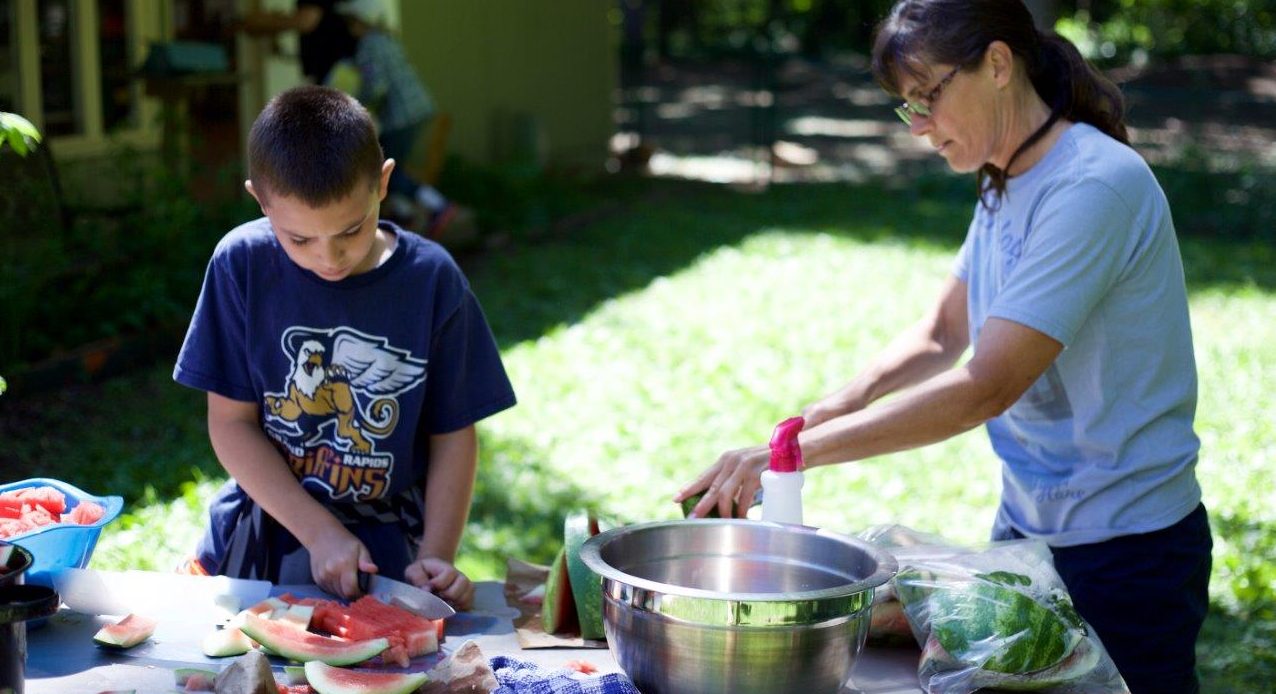In the classroom we often talk about preparing the environment to meet the needs of the children and fostering a sense of community based on how we interact with one another. These same principles can be applied at home as well.
Let’ start by remembering what we know about our children at various ages. The children from birth-six years are constructing themselves and they learn through their senses, not by words, but through their experiences. They have a psychological need for order in their environment and in their routines. Children at this age do not think about the past and don’t predict the future; they stay in the present and really don’t understand what “soon” means.
When thinking about our interactions we have to ask ourselves, are we using an appropriate tone of voice? Is our level at an appropriate level with the child who is nearby or are we raising our voice from afar? Is our language clear with no innuendos? If you are asking your child to put something away, be specific. You can still provide a choice whether to start with the blue blocks or the red blocks, but you are still directing your child to clean up. It is important to validate a child’s feelings and responses, set clear and consistent limits and use redirection when needed. Are you feeling frustrated and it is time to clean up the blocks? Do you want to start with the red or the blue blocks? You might just start singing and begin picking up the blocks.
To strengthen our relationships with one another, it is important to show appreciation for one another and show kindness. How do we know what is preferred by our children? Just ask them! What do I do that makes you feel loved? What do you to do make me feel loved? These daily tasks of kindness and appreciation will help foster a strong sense of community.
The children from 6-12 years of age are expressing their personality and using their logical and reasoning mind to ascertain their place in society. The birth of the social child is a strong characteristic at this age. They love to belong to clubs or have varied interest groups. Community service is strongly recommended at this age to help them understand the dynamics of contributing to a group.
They are learning how to be a responsible member of a group so how they contribute as a family member is very important. Involving the children in appropriate family planning or conflict resolution can help them understand the process of communicating about a situation, discussion possible solutions, making a plan and implementing that plan.
When children participate in family chores, meal preparation, cleaning, and age appropriate decisions they begin to understand their role in a community and feel like a contributing member of the family. This builds confidence in their relationships with their peers, as well.
By understanding the children’s characteristics at various ages, utilizing appropriate levels and tones of communication, validating your children’s feelings and setting clear and consistent limits, these all help to support a positive sense of community.
You may often hear singing at school. Singing is a wonderful cohesive activity that stimulates endorphins, evokes emotion, deepens empathy and immerses children in the community.
Sincerely,
Susie

